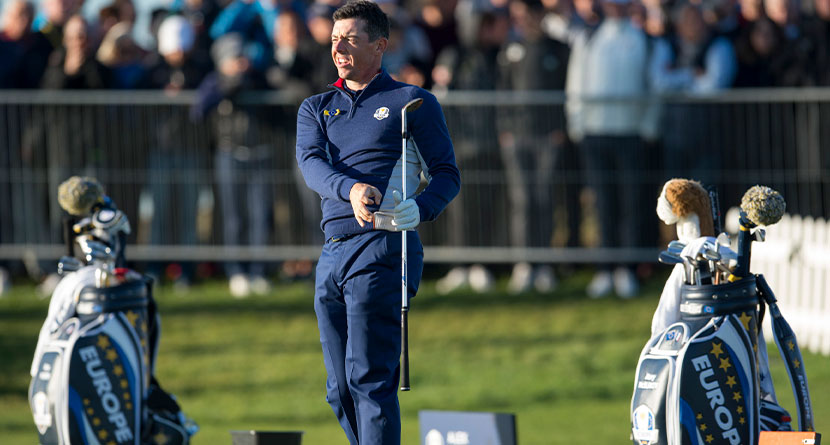Like most everything in life, practice is subjective. What works for you may not work well for the person next to you on the driving range.
However, the way you practice has been debated for years in instruction circles, and interestingly enough, people have come down on both sides to the block or random debate.
We asked our top-rated Master Faculty, teachers to everyone from Tour pros to beginners, what they’re thoughts were on the best ways to practice, either hitting balls consecutively with on club (block practice) or switching between clubs with practically every shot (random practice).
Here’s what they had to say.
Gary Gilchrist, Golf Digest Best In Florida (#19); Golf Magazine Top-100
This is personality-driven. It depends on the personality of the person. How structured are they?
For example, Bubba Watson, he’s more random. He works on things a short period of time and doesn’t like to do drills all day. Some guys are more detailed, structured and work on timing.
It’s totally up to the player. When you do and play, golf is random, so to me, when it comes to changing something technically block practice is best.
Chris O’Connell, Golf Digest Best In Texas (#8); Golf Magazine Top-100
I’m a big believer in block practice until you can produce a correct impact that is fairly repetitive.
If someone is chunking and blading chip shots there is no need to try it in random practice. If they can’t produce a correct and repetitive impact in block, then they have a mechanical flaw. That mechanical flaw makes it too difficult to overcome and hit a good shot. They can hit good ones with the mechanical flaw, but they are few and far between.
I love random practice as it reflects how golf is played, but only after a player can produce good shots on a somewhat consistent basis.
Stan Utley, Golf Digest Top-50; Golf Digest Best In Arizona (#3)
Block practice is good for working on changing technique. It definitely is useful.
Because I focus on short game and scoring, I have my students working on random practice quite a bit because every shot in golf is unique in some way.
Josh Zander, Golf Digest Best In California (#8); Golf Magazine Top-100
I think block is more important when learning a new skill.
Once the skill is habituated, random is essential to transfer skills to the golf course.
Dr. Joe Parent, Golf Digest Top-10 Mental Game Expert; Best-Selling Author Of Zen Golf and Zen Putting
I like to separate out “skills practice” and “performance practice.” My saying for skills practice is “Drills for Skills to Groove a Move.” No need for full routine when doing your reps.
Use caution: don’t overdo too many reps in a row; it can make things worse.
A good rule of thumb is 3 sets of 7 reps of any move, with breaks in between sets for water and a little stretch. After 21 reps, switch to another club or move.
Learning theory research says that after a period of practice, shifting to work on a different skill imprints the last skill better. After learning a piece on the piano, go mow the lawn. In golf, switch from full swing to putting to short game and so on.
In each area, after skills work, shift to performance practice, simulating play on the course as closely as you can. Full pre-shot routine, shot-making, and post-shot routine on every shot. Same thing on the putting green and short game area.
It’s helpful to simulate competition by playing games against fellow competitors or your own baseline performance.
Joe Hallett, Golf Digest Best In Tennessee (#1); Golf Magazine Top-100
I was just with Eric Alpenfels who did all the research for the PGA of America on this with Dr. Bob Christina. Block for technical improvements and random for competitive readiness
Jonathan Yarwood, Golf Digest Best In South Carolina (#8); Golf Magazine Top-100
Golf is a problem-solving game in an ever-changing environment, so random practice is vital to helping build the bridge from the range to the course. Conversely, there is a time and place to work on technical improvements that create greater ball control. This is the only time my players do block practice, to cement a new move.
I would recommend all players reading this, even if you only have an hour, to plan that session. Twenty minutes block practice, 20 minutes of skill transfer work via random targets and clubs, then 20 minutes short game. That way you are constantly dabbling in skill acquisition, skill mastery and skill transfer, which is the name of the game.




